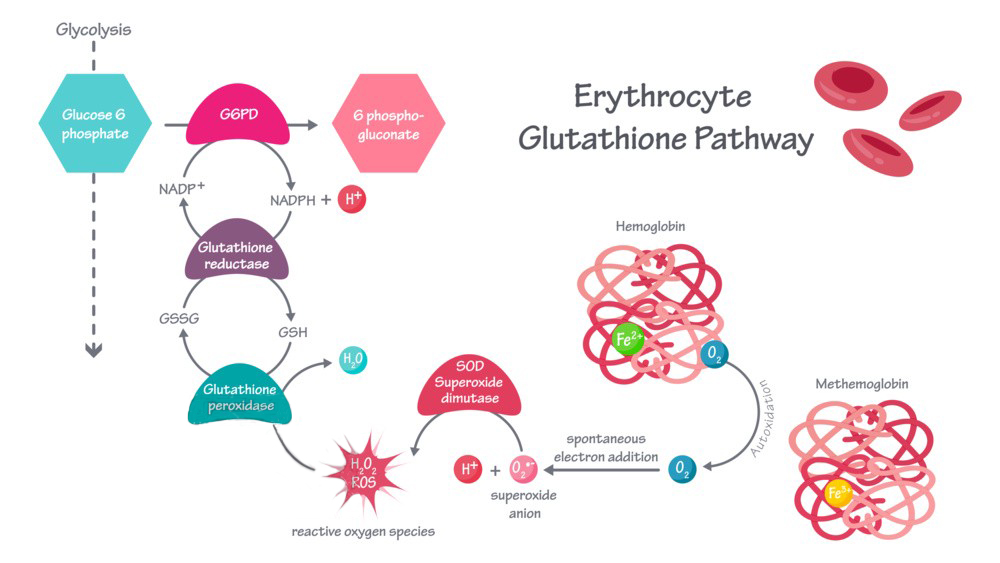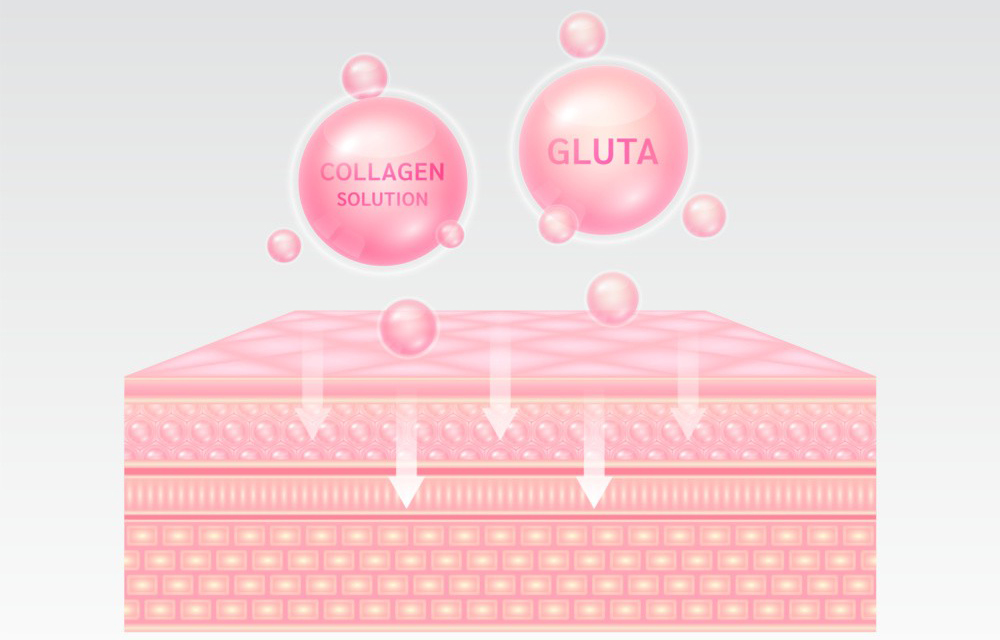Glutathione is a small molecule composed of three amino acids: glutamine, cysteine, and glycine. It is considered one of the body’s most important antioxidants, protecting cells from oxidative stress and maintaining the balance of reactive oxygen species (ROS) within the body. Glutathione is found in high concentrations in various tissues, particularly in the liver, where it plays a crucial role in detoxification processes.
Key Functions of Glutathione:
- Antioxidant Defense: Glutathione neutralizes free radicals and reactive oxygen species (ROS), which can damage cells, proteins, and DNA.
- Detoxification: It aids in the detoxification of harmful substances in the liver, including heavy metals, toxins, and metabolic waste products.
- Immune System Support: Glutathione helps modulate the immune system and supports the production of immune cells.
- Protein and Enzyme Regulation: It participates in various enzymatic reactions, including those involved in the metabolism of fats, proteins, and carbohydrates.
- Cellular Repair and Maintenance: Glutathione is involved in repairing oxidative damage to cells and tissues, helping to preserve cell function and longevity.

Health Benefits of Glutathione:
- Skin Health: Glutathione is often used for skin brightening, as it can reduce melanin production, leading to lighter skin tone and even pigmentation.
- Anti-Aging: Its antioxidant properties help reduce signs of aging, such as wrinkles and fine lines, by preventing cellular damage.
- Detoxification: Helps eliminate toxins, which may improve liver function and overall health.
- Chronic Diseases: Low glutathione levels are linked to various conditions like Parkinson’s disease, heart disease, diabetes, and autoimmune disorders.
Sources of Glutathione:
Glutathione is produced naturally in the body, but its levels can be depleted due to factors like aging, poor diet, environmental toxins, and chronic stress. It can also be obtained through food sources rich in sulfur-containing amino acids, such as:
- Cruciferous vegetables (broccoli, Brussels sprouts, cauliflower)
- Garlic
- Onions
- Spinach
- Avocados

Supplementation:
Glutathione supplements are available, typically in the form of capsules, tablets, or injectable solutions. However, some studies suggest that oral glutathione may not be as effective as other forms, such as liposomal or intravenous glutathione, because it can be broken down during digestion.
Maintaining optimal levels of glutathione is vital for overall health, and its depletion can lead to increased susceptibility to oxidative damage and disease.
